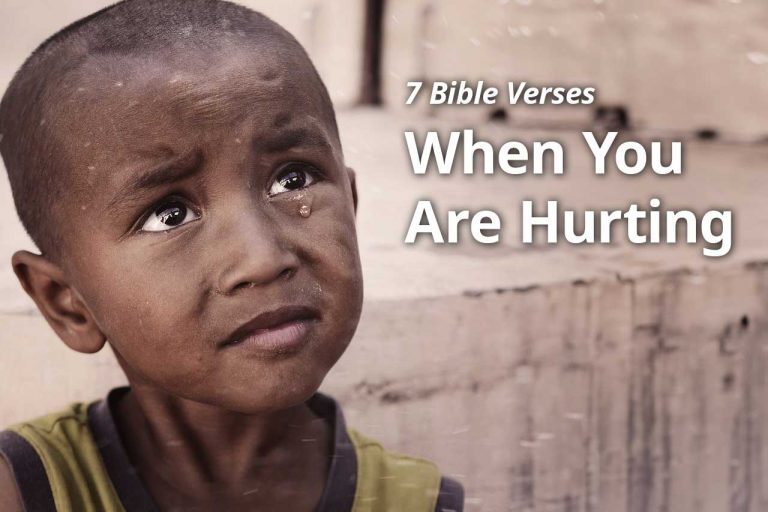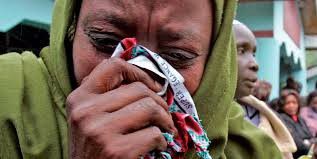The Messengers from John the Baptist
(Luke 7.18-35)1 When Jesus finished giving these instructions to his twelve disciples, he left that place and went off to teach and preach in the towns near there.
2 When John the Baptist heard in prison about the things that Christ was doing, he sent some of his disciples to him. 3 “Tell us,” they asked Jesus, “are you the one John said was going to come, or should we expect someone else?”
4 Jesus answered, “Go back and tell John what you are hearing and seeing: 5 the blind can see, the lame can walk, those who suffer from dreaded skin diseases are made clean, the deaf hear, the dead are brought back to life, and the Good News is preached to the poor. 6 How happy are those who have no doubts about me!”
7 While John's disciples were leaving, Jesus spoke about him to the crowds: “When you went out to John in the desert, what did you expect to see? A blade of grass bending in the wind? 8 What did you go out to see? A man dressed up in fancy clothes? People who dress like that live in palaces! 9 Tell me, what did you go out to see? A prophet? Yes indeed, but you saw much more than a prophet. 10 For John is the one of whom the scripture says: ‘God said, I will send my messenger ahead of you to open the way for you.’ 11 I assure you that John the Baptist is greater than anyone who has ever lived. But the one who is least in the Kingdom of heaven is greater than John. 12 From the time John preached his message until this very day the Kingdom of heaven has suffered violent attacks, and violent men try to seize it. 13 Until the time of John all the prophets and the Law of Moses spoke about the Kingdom; 14 and if you are willing to believe their message, John is Elijah, whose coming was predicted. 15 Listen, then, if you have ears!
16 “Now, to what can I compare the people of this day? They are like children sitting in the marketplace. One group shouts to the other, 17 ‘We played wedding music for you, but you wouldn't dance! We sang funeral songs, but you wouldn't cry!’ 18 When John came, he fasted and drank no wine, and everyone said, ‘He has a demon in him!’ 19 When the Son of Man came, he ate and drank, and everyone said, ‘Look at this man! He is a glutton and wine drinker, a friend of tax collectors and other outcasts!’ God's wisdom, however, is shown to be true by its results.”
The Unbelieving Towns
(Luke 10.13-15)20 The people in the towns where Jesus had performed most of his miracles did not turn from their sins, so he reproached those towns. 21 “How terrible it will be for you, Chorazin! How terrible for you too, Bethsaida! If the miracles which were performed in you had been performed in Tyre and Sidon, the people there would have long ago put on sackcloth and sprinkled ashes on themselves, to show that they had turned from their sins! 22 I assure you that on the Judgment Day God will show more mercy to the people of Tyre and Sidon than to you! 23 And as for you, Capernaum! Did you want to lift yourself up to heaven? You will be thrown down to hell! If the miracles which were performed in you had been performed in Sodom, it would still be in existence today! 24 You can be sure that on the Judgment Day God will show more mercy to Sodom than to you!”
Come to Me and Rest
(Luke 10.21Luke 22)25 At that time Jesus said, “Father, Lord of heaven and earth! I thank you because you have shown to the unlearned what you have hidden from the wise and learned. 26 Yes, Father, this was how you were pleased to have it happen.
27 “My Father has given me all things. No one knows the Son except the Father, and no one knows the Father except the Son and those to whom the Son chooses to reveal him.
28 “Come to me, all of you who are tired from carrying heavy loads, and I will give you rest. 29 Take my yoke and put it on you, and learn from me, because I am gentle and humble in spirit; and you will find rest. 30 For the yoke I will give you is easy, and the load I will put on you is light.”
Ŋen ŋe-Yuanna igi gənanaid̶ia mamuḏiya
(Luka 7:18-35)1 Na ndə Yesu gërrəŋaicu ṯaləmis ilëɽəŋu ŋen d̶əge, isi red̶ neməñe eɽijan, gënəŋu nəŋəməñe alo yakəl ṯa aŋërrəŋaid̶i ŋen na aŋəɽwate ŋen ŋə-Rəmwa irnuŋ egen. 2 Ŋen Yuanna gəfo isijən nəŋəne ŋen iŋi Almasiya gid̶u, nəŋəmad̶weiṯi ṯaləmis ilëɽəŋu, 3 ṯa aiyəmeɽəd̶e ṯa, “Agaɽo ed̶a igi ñagəlwaɽənṯəmau ṯa gid̶i aŋela walla ñagaṯurṯia ed̶a gərto?” 4 Yesu nəŋəluɽəbiṯi eŋen nəŋaṯa, “Mbər ñəlwaɽəṯi Yuanna ŋen ŋəlaŋge ildi ñagəseicəlo na ñagənəlau. 5 Led̶a ildi ləŋəlisi lid̶ənu ləseid̶ia, na led̶a ildi ləɽo ləbəco lid̶ənu ləbərlda, na led̶a ləgəro lid̶ənu ltəɽe, na led̶a ləɽo ndul lid̶ənu lənna, na led̶a laiyo latud̶inu, na ŋen ŋəŋəra ŋërrəŋeid̶ənu eled̶a ləɽo ləbai aŋəno. 6 Na ed̶a gaŋəra nano igi gero gəfid̶a ŋen ŋənəŋ eŋen ŋəlëɽəñi iŋi ŋəmid̶ia gəbëɽəŋeinia.”
7 Ndə led̶a ildi ləbəɽo, Yesu nəŋəlwaɽəṯi led̶a lərraid̶o eŋen ŋe-Yuanna ṯa, “Ñagabəɽo ed̶əñwa ṯa, ñəseici wande? Ṯa ñəseici pəɽwapəɽwa id̶i d̶əbera d̶ətësia? 8 Orn ñagabəɽo ed̶a? Ṯa ñəseici ed̶a gëɽənu ndrenia nano nəmətiaŋəno? Led̶a ildi lëɽənu ndrenia nano nəŋəra kaiñ lënəŋulu lafo eneɽa nənələŋ noɽra. 9 Orn ñagabəɽo ed̶a? Ṯa ñəseici nabi? A, igandəlwaɽəṯia d̶eṯəm ñagaseicu ed̶a goɽra gəməñaṯo nabi. 10 Fəŋu Yuanna igi ŋen ŋəwërd̶ənu ŋen ŋanṯa ŋu,
‘Seid̶u egad̶waṯa ed̶a ŋa nëiñua, gerṯo ŋen ŋəlëɽəñi
igi gid̶i aŋaṯoɽaṯe d̶ad̶ ŋa nëiñua’.
11 Đeṯəm igandəlwaɽəṯia ṯa, Yuanna igi gənanaid̶ia mamuḏiya goɽra gaməñaṯo led̶a ildi ləməṯia. Orn ed̶a igi gəta gəməñaṯo led̶a pred̶ eŋələŋe ŋelo, gënəŋu goɽra gaməñaṯəma, 12 iliga le-Yuanna igi gənanaid̶ia mamuḏiya na d̶əñid̶i məldin, ŋələŋe ŋelo ŋananeinu ŋen ŋubwa, na led̶a ildi ləbëndəjeicia ŋen ŋəɽwano lënəŋulu ləbënṯia ŋabəɽaŋa. 13 Ŋen Yuanna gəmulu geṯo nabiya pred̶ na Alganun yi-Musa laɽwata eŋen iŋi. 14 Na ndə ñagəɽwad̶aṯa ñagəbəŋënṯia ŋen iŋi, Yuanna gaɽo Iliya igi gəlwaɽəniau ram ṯa gid̶i aŋela. 15 Ŋgiṯr led̶a ildi lerṯo nënəñia alne ŋen iŋi.
16 “Led̶a ildi ləfo d̶əñid̶i larno wande? Lënəŋulu larno ñere iñi ñəɽaŋa nəsuk ṯaiñurndəd̶u ṯaiñəɽwataid̶o ṯa,
17 ‘Ñagëriṯənde ŋəmëŋia orn nəñerṯe ñagərṯia,
ñagaləŋəṯənde d̶eicianod̶a orn nəñerṯe ñagəbara!’
18 Ŋen ŋanṯa Yuanna geṯo nəŋerṯe gəsa aicəba walla gəṯia ŋawa ŋenəb, na led̶a ldaṯa ṯa, gënəŋu gerṯo usila nano geicia! 19 Orn Id̶ia gə-Led̶a geṯo nəŋəse nəŋəṯi, na led̶a ldaṯa ṯa, ‘Seicr, ed̶a igi gamiñod̶əñano gəṯia ŋawa ŋenəb, igi gəɽo rappa led̶ala ildi lətəmeicia ṯolba na led̶ala leicia!’ Đələŋeṯa ŋen nəsi d̶ërrəŋeinu ṯa d̶aɽo d̶eṯəm ŋəmëɽriaŋa ŋəlëɽəŋu.”
Ŋen ŋirnuŋ igi gero gəbëndia ŋen ŋə-Rəmwa
(Luka 10:13-15)20 Orn gënəŋu nəŋgariñaṯe irnuŋ goɽra igi gid̶au aŋwara ywaiña, ŋen ŋanṯa led̶a ildi ləfau lero laŋgiṯia ŋen eŋen ŋeicia na lero loɽəbaṯa Rəmwa nano, 21 “Nəŋaṯa, ya alo yi-Kurisin! Agid̶i ŋaneini ŋen ŋubwa. Ya alo yi-Beṯsaiḏa! Agid̶i ŋaneini ŋen ŋubwa, gəbanṯa aŋwara yoɽra isi yid̶ənu eñaŋ yafo yid̶ənu alo yi-Sur na alo yi-Siḏa, ṯa led̶a lalo yakəl laŋgiṯu ŋen eŋen ŋeicia ram ldəɽaŋe egobwan ldëɽəni suwal nano ldoɽəbaṯe Rəmwa nano. 22 Orn igandəlwaɽəṯia ṯa, eloman ildi Rəmwa rid̶i arwakəme alo d̶akəmia ed̶alo d̶id̶i ad̶oɽreṯe d̶əməñaṯo d̶akəmia d̶alo yi-Sur na d̶alo yi-Siḏa. 23 Na aganəŋa ya alo yi-Kafrnawum agwonaṯa agəbeinia elo? Agid̶i ŋirəweicini alo eled̶a ildi laiyo. Ŋen ŋanṯa gəbanṯa aŋwara yoɽra isi yid̶ənu eŋa yafo yid̶ənu alo yi-Səḏum, ṯa led̶a lalo yi-Səḏum lafo d̶əñid̶i məldin. 24 Orn igaŋəlwaɽəṯia ṯa eloman ildi Rəmwa rid̶i arwakəme alo, d̶akəmia d̶əlaɽəŋa d̶id̶i ad̶oɽreṯe d̶əməñaṯo d̶akəmia d̶alo yi-Səḏum.”
Eṯañr nano na ñəmiñəniano
(Luka 10:21-22)25 Iliga ildei Yesu nəŋaṯa, “Bapa igaŋërṯiaŋa nano ŋəŋgi agəɽo Eləŋ gelo na galo, ŋen ŋanṯa agaləbəjaico led̶a ŋen iŋi ildi lələŋeṯo ŋen nəsi na ildi lwaiña ŋəṯəɽa orn agërrəŋaicu ñere ŋen. 26 Đeṯəm Bapa, agid̶u ṯia ŋen ŋanṯa ŋen ŋəlaɽəŋa ŋid̶iaŋa agəŋəra nano.” 27 Na Yesu nəŋeiṯi ṯaləmis ṯa, “Bapa gəlëɽəñi ganaicəñe ŋen pred̶ na ed̶a gero gələŋeṯo Id̶ia, illi Đaṯa, na ed̶a gero gələŋeṯo Đaṯa, illi Id̶ia na ed̶a igi Id̶ia gwonaṯa gəmërrəŋaicia. 28 Eṯañr nano ñaŋ pred̶ ñəŋgi ñagicwaro na ñagerṯo ŋen nano ŋinia, na igid̶i endənaice d̶əmiñəniano. 29 Meinr ŋen nano ŋəlëɽəñi na ñërrəŋeini ŋen iñi, ŋen ŋanṯa egad̶ərnaṯaralo na egaṯa egare na ñagid̶i ñafid̶i d̶əmiñəniano ŋen ŋanṯa nusila enalo. 30 Ŋen ŋanṯa ŋen ŋəlëɽəñi ŋandid̶ia ñagəŋəra nano na d̶inia d̶əlëɽəñi d̶ëbia.”


